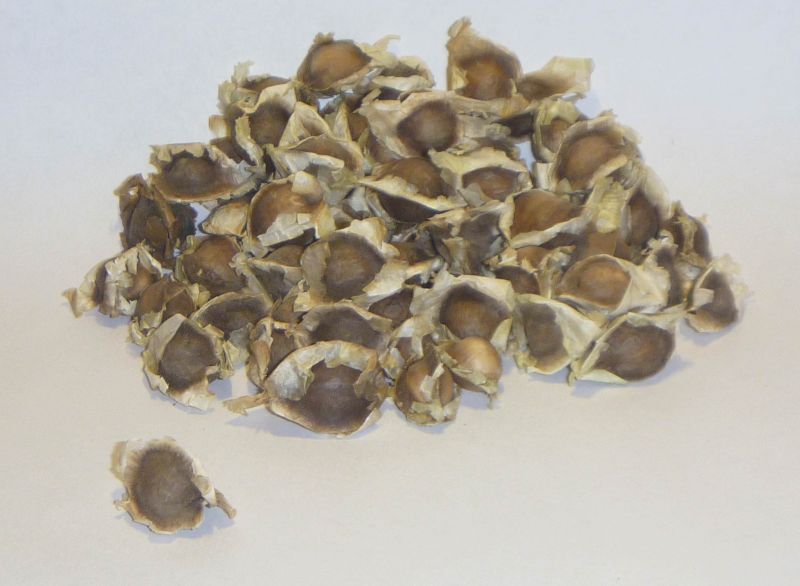Tropical Tree Seeds Provide Sustainable Water Filtration
Published on by Water Network Research, Official research team of The Water Network in Academic
Moringa Seeds and “Sticky Killer Sand” Work Together to Clean Water
The Moringa seed cleans water by releasing a positively charged protein that dissolves in the water and removes pathogens. “The problem is the seed also contains oil and other organic matter that microorganisms in the water can use as food,” explains Stephanie Butler Velegol, instructor in civil and environmental engineering. “So after it’s been stored, water treated with Moringa seed is no longer safe to drink.”

Moringa Seeds, Source: Wikimedia Commons
Several years ago, Velegol and her colleagues found that when they add sand, which has a negative charge, to water, the positively charged Moringa protein binds to the sand. When the Moringa protein and the sand bind together, the surface charge of the sand reverses to positive. Bacteria and sediment then stick to this "f sand" (which stands for functionalized sand). "When we rinse the f sand, we are left with 'sticky killer sand' that we can use over and over again as a filter," Velegol says.
Now Velegol and her research group are taking their findings a step further, after receiving the Material Research Institute’s inaugural Humanitarian Materials Initiative Award. Created last fall, the award is part of an initiative to support ongoing research aimed at providing long-term and sustainable solutions to problems in under-resourced regions of the world.
The team of scientists is using the $15,000 prize to fund four students, undergraduate and graduate, to do research toward improving the Moringa-coated sand filter.
One student’s work in the lab resulted in making the sand/water/Moringa mixture more efficiently—reducing mix time from more than two hours to just ten minutes. “Our process for creating the sand filter involved mixing for two and a half hours, but that’s way too long for someone doing this on the ground,” Velegol says. “Knowing that we can reduce mix time to just ten minutes, and get the same result, is one important step toward making this technique much more practical.”
She also discovered a simple field test for the reliability of the sand filter: the “stick test.” When a Moringa mixture is put into a plastic water bottle and the bottle is turned sideways and rotated, if the sand sticks to the side of the bottle that means the filter is working. “The sand sticks because the plastic has a positive charge,” Velegol explains.
“On the ground, the stick test is a quick way to confirm that a particular filter works. And in the lab, we confirmed that every time the sand has a positive charge, the stick test works.” Although the stick test shows promise, Velegol emphasizes that more research is needed to ensure that lab results continue to match field results.
Read full article: Penn State
Access paper 'Moringa oleifera f-sand Filters for Sustainable Water Purification': ACS Publications
Media
Taxonomy
- Drinking Water Security
- Treatment
- Treatment Methods
- Biological Treatment
- Drinking Water Treatment
- Biological & Chemical Quality
- Biological Treatment
- Drinking Water Managment
- Drinking Water
- water treatment
2 Comments
-
A wonderful tree which provides multiple benefits
-
just a slow sand filter will work. though the moringa seeds is interesting. i have eaten moringa with mung beans and they are delicious.